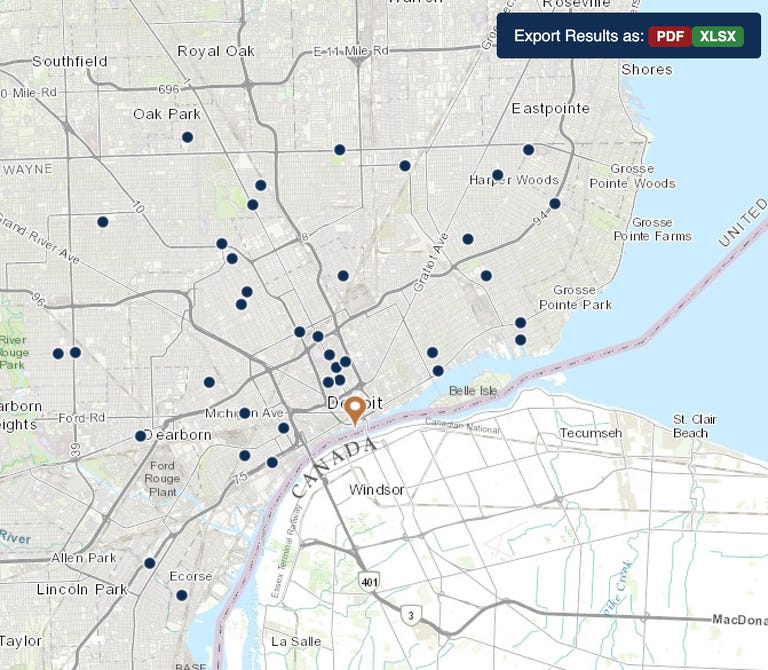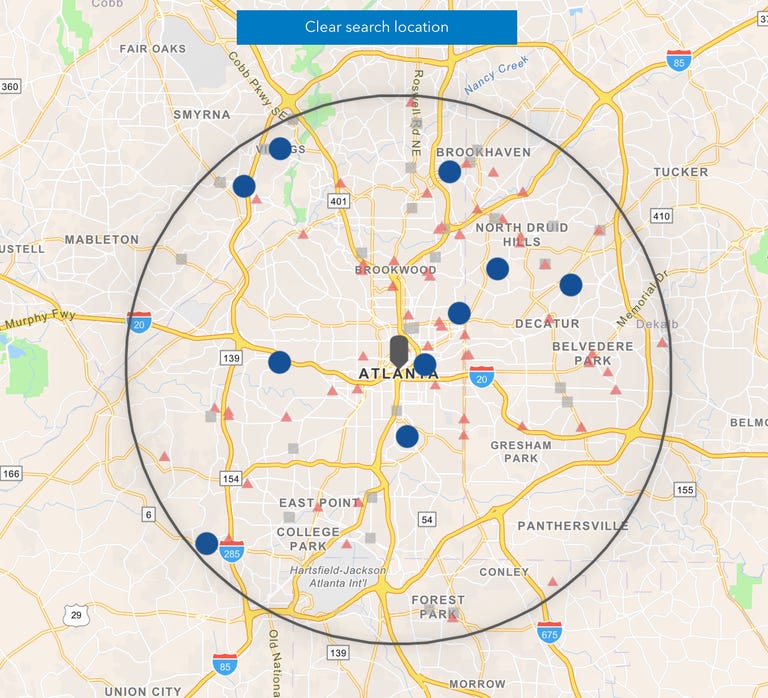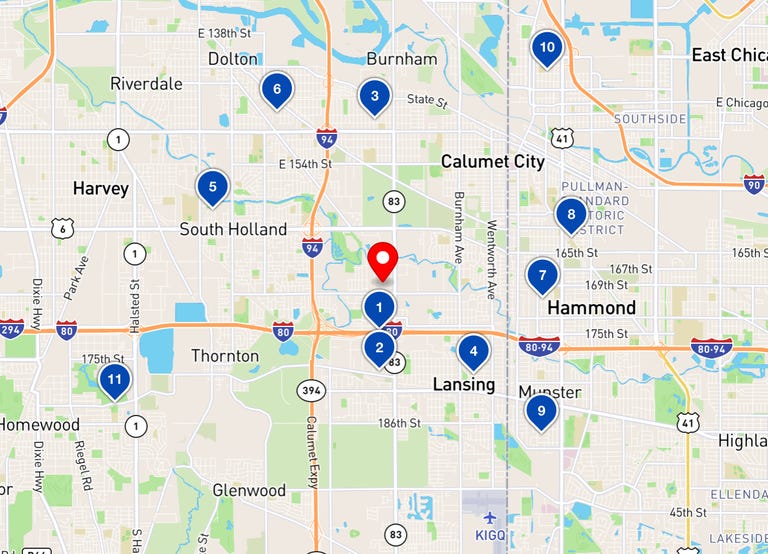Ah, fall. The season for sweaters, soup and, of course, updated vaccines. In addition to getting your yearly flu shot, consider making sure you and your family are up to date on your COVID vaccines — the new Novavax vaccine may be a good option. And it’s helpful to have some test kits on hand in case you start to develop COVID symptoms. But before you rush out to buy at-home test kits, we have good news: the federal government has started sending them out for free.
Using the COVIDTests.gov website, US households can once again order four free at-home COVID test kits. The government opened the ordering system on Sept. 26.
Beyond the free tests from USPS, there are still a few different ways to get free testing for COVID-19. Read on to find out the ways you can still get free COVID testing, as well as how to get free COVID treatments.
For more, learn about the at-home flu vaccines approved by the FDA and how to tell whether your symptoms are COVID-19, flu or just allergies.
How does the USPS free COVID-19 test program work?
In January 2022, President Joe Biden announced the launch of CovidTests.gov, a website where households could order four free rapid antigen COVID-19 tests shipped by the Postal Service. The site added four more free tests in March 2022, eight more in May 2022, four more in December 2022 and four more again in September 2023. This new round of shipments also includes four COVID tests to start. It’s not certain if there will be another round of free tests this winter.
Unlike some complicated government applications, ordering free tests from the Postal Service is simple. It take less than 2 minutes to complete a short form asking for your name and mailing address, and the tests should ship in about a week or two. People without internet access or those who have trouble ordering online can request tests using a toll-free phone number: 800-232-0233
It’s not clear exactly how long the free COVID-19 tests will last, so it’s best to get your order in as early as possible.
How can I order free tests from USPS?
Visit CovidTests.gov and then click on the blue button reading Order Free At-home Tests, which will take you to the ordering page. You only need to provide your name and your address to order your tests. You can also enter an email if you want to receive shipping notifications. You don’t need to provide any credit or debit card details — the tests and the shipping are free.
All orders will be shipped via First Class Package Service. People who can’t access the website or who have trouble ordering online should be able to call 800-232-0233 to order their free tests.
When will my COVID tests arrive?
In the past, free COVID tests from USPS have arrived about two weeks after ordering. The tests are typically sent out within seven to 12 days and are delivered by USPS within one to three days after shipping.
What are my other free COVID-19 testing options?
Aside from the Postal Service’s program to ship free COVID tests, you have five main avenues to find free COVID-19 testing locations across the US: HRSA health centers, Test to Treat locations, ICATT testing sites, private health insurance, and Medicaid or the Children’s Health Insurance Program. These options function similarly, but we’ll break down the specific steps to find your nearest free testing location.
HRSA health centers offer free COVID-19 testing

HRSA health centers offer free COVID-19 testing.
The Health Resources and Services Administration funds health centers across the US. At these HRSA health centers, you will be able to receive free COVID-19 testing. You can use HRSA’s locator tool to find a center near you.
First, select the language you would like to receive your results in. Then simply enter the location you wish to search into the box labeled Location. The locator also allows you to widen your search radius, so you can see all the options your area has to offer.
Once you’ve found a center that works for you, click through to that particular location’s website and follow their specific instructions for obtaining a free COVID-19 test.
Test to Treat locations have COVID testing and medicine

The Test to Treat program makes COVID testing and therapeutics more accessible.
Test to Treat is a federally funded healthcare initiative that provides more accessible COVID-19 care. This option differs from the others in this article as you can use the Test to Treat centers to receive both COVID testing and treatment for infections. Like the other COVID-19 free testing options, Test to Treat has a locator tool that you can use to find an eligible Test to Treat center near you.
The Test to Treat center locator works like the other COVID testing search tools. Enter your location into the search bar and the tool will display Test to Treat locations in your area. A sliding bar lets you resize the search radius to capture all of the Test to Treat centers within your area.
Within the Test to Treat locator results, you’ll be able to see each location’s address, which COVID-19 therapeutics they offer and other special instructions you might need to know to get tested. If there’s not an option to schedule a COVID test online through your chosen site, you may need to call.
Increasing Community Access to Testing provides COVID testing for the uninsured

ICATT offers free testing to uninsured patients who are showing symptoms of COVID-19 or who have recently been exposed.
Increasing Community Access to Testing is another free testing program that you can use if you need access to free COVID-19 testing. ICATT works a bit differently than the other programs on this list.
ICATT is specifically designed for uninsured patients who have been exposed to COVID-19 or are experiencing symptoms of COVID-19. Anyone can get an ICATT test at one of the program’s locations, regardless of insurance status. If you are uninsured and you wish to be tested at an ICATT-eligible site, you will not need to pay for your test. If you are insured, you might need to pay a fee.
The ICATT locator tool works just like the other locator tools for free COVID testing — input your address or your ZIP code to find ICATT locations near you. There is a search radius adjuster in this locator to tweak your searches to capture the entire area that you want to search.
Once you’ve found a location, follow your testing site’s steps for scheduling your appointment.
What about free COVID tests from health insurance, Medicare or Medicaid?
On Jan. 10, 2022, President Joe Biden announced that all health insurance companies would be required by law to provide their customers with eight free COVID-19 tests per month. That requirement expired with the end of the national public health emergency for COVID-19 on May 11, 2023.
California law still requires all health care providers to offer eight free at-home COVID-19 tests per month to their customers. Outside that state, you’ll need to check with your own health insurance to learn its coverage policy for over-the-counter COVID tests.
Medicare generally doesn’t pay for over-the-counter products like COVID-19 test kits, according to the Center for Medicare and Medicaid Services. Medicare’s coverage of at-home COVID tests ended with the public health emergency.
If you’re enrolled in Medicare Plan B, you still have access to “laboratory-conducted COVID-19 tests” such as polymerase chain reaction tests, but you won’t be covered for over-the-counter rapid antigen tests. If you have health care coverage through Medicaid or the Children’s Health Insurance Program, you can still receive free at-home COVID tests through Sept. 30, 2024.
For more, learn how your blood type could make you more susceptible to COVID.
